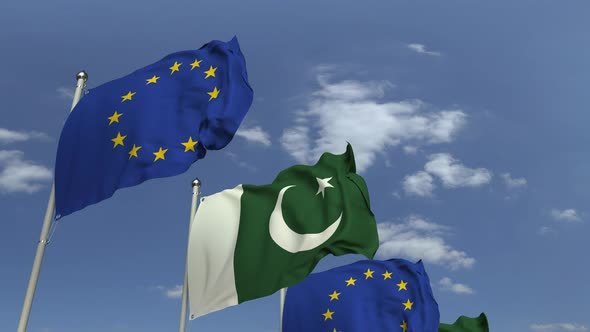ISLAMABAD: Pakistan and the European Union have agreed to continue cooperation on emerging challenges of food, energy security, and climate change, underlining sustained engagement, particularly in areas such as trade, migration, human rights, political, economic and development cooperation with a focus on the Global Gateway strategy.
The bilateral relations and cooperation were discussed in the 14th Pakistan-European Union (EU) Joint Commission meeting which took stock of recent political developments besides the ongoing formation of the new College of Commissioners, according to a joint press issued Friday on the Joint Commission meeting held recently.
The Joint Commission was preceded by the Sub-Group on Democracy, Governance, Rule of Law and Human Rights in which two sides agreed on the need for continued efforts to strengthen the electoral process. The EU reiterated the importance of political pluralism, democratic values, independent media, vibrant civil society, judicial independence, and international human rights standards, which are key for democratic elections.
Both sides reaffirmed their commitment to the protection of all human rights, including women’s and children’s rights, labor and migrant rights, as well as fundamental freedoms, such as freedom of expression and opinion including the growing problem of disinformation.
Pakistan presented its reform agenda, including in the framework of the National Action Plan on Human Rights, National Action Plan on Business and Human Rights, as well as actions towards the full implementation of 27 international conventions related to GSP+.
Pakistan and the EU also exchanged views on freedom of religion or belief and the rights of persons belonging to minorities and vulnerable groups and concerns about anti-Muslim hatred.




